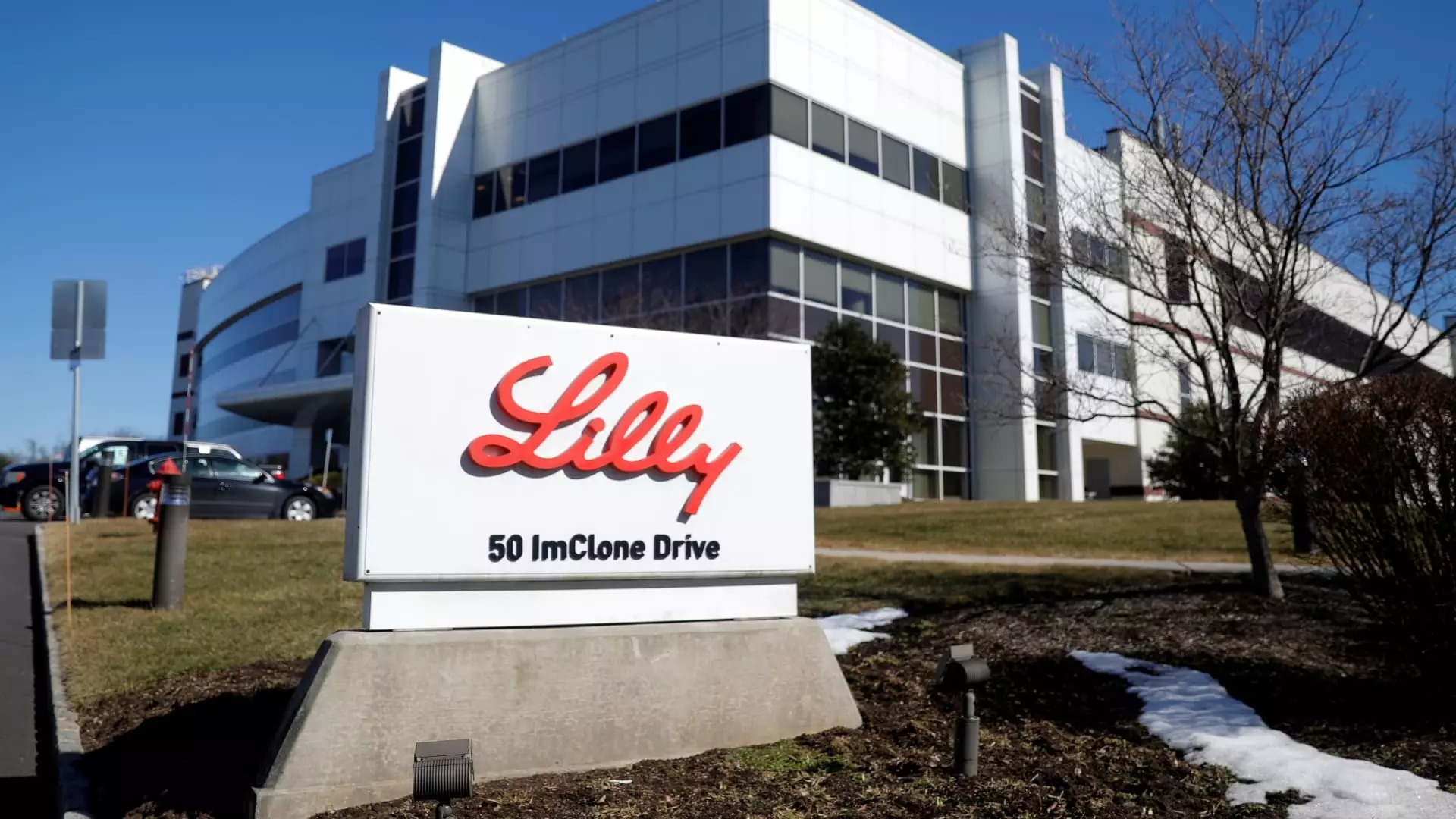The soaring demand for weight loss and diabetes treatments has paved the way for Eli Lilly’s unprecedented success in the past year. With CFO Anat Ashkenazi at the helm, the pharmaceutical giant has managed to navigate the windfall in revenue generated by diabetes injection Mounjaro and obesity drug Zepbound. However, despite these accomplishments, Ashkenazi acknowledges that there is much more work to be done to sustain and build upon the company’s current success.
One of the main challenges faced by Eli Lilly, along with rival Novo Nordisk, is the difficulty in manufacturing enough supply of their treatments to meet the surging demand, resulting in nationwide shortages of these drugs. These treatments, classified as GLP-1 agonists, play a crucial role in curbing appetite and regulating blood sugar levels. Although the market potential for these drugs is estimated to be worth $100 billion by the end of the decade, there are obstacles to overcome in terms of scaling up production to keep pace with demand.
Ashkenazi emphasizes the importance of Eli Lilly’s substantial investments in manufacturing facilities to address the supply shortages and ensure that more patients have access to these life-changing medications. The company is focused on reinvesting revenue back into the business to expand its manufacturing capabilities. With ongoing construction and expansion of facilities in multiple locations, Eli Lilly is making strides in bolstering its manufacturing footprint across the U.S. and Europe to meet the growing demand for its products.
In addition to ramping up production, Eli Lilly is also working to improve access to weight loss drugs, particularly by addressing the limited insurance coverage for these medications in the U.S. Some insurers are hesitant to cover these treatments due to their high costs, which can strain their budgets. However, Ashkenazi notes that there has been progress in expanding coverage for drugs like Zepbound among commercial insurers, with the aim of making these treatments more accessible to a wider range of patients.
Another key focus for Eli Lilly is challenging the misconceptions surrounding obesity as a lifestyle choice rather than a chronic disease. Ashkenazi believes that changing this narrative is essential in advocating for increased coverage for weight loss drugs, particularly among patients enrolled in federal programs like Medicare. By demonstrating the broader health benefits of these treatments beyond weight loss alone, Eli Lilly aims to secure greater support and coverage for patients with obesity-related conditions.
While Eli Lilly has made significant strides in meeting the demand for weight loss and diabetes treatments, there are still challenges and obstacles to navigate in the pursuit of sustained growth and success. By investing in manufacturing, enhancing access to treatment, and shifting perceptions around obesity, Eli Lilly is positioning itself for continued expansion and impact in the pharmaceutical industry.

